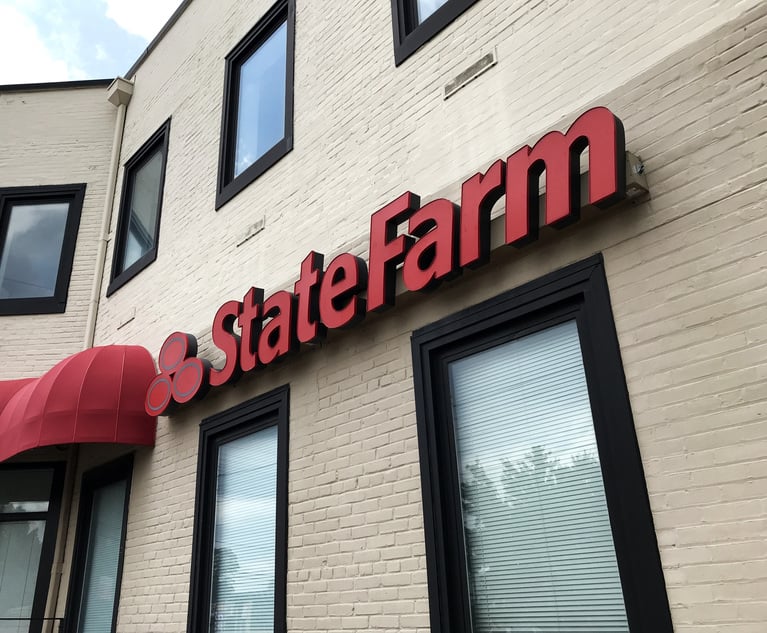NU Online News Service, Jan.14, 3:40 p.m.EST
|WASHINGTON–Insurance companies with financearms and $50 billion in assets would be subject to a federal tax onliabilities under a proposal unveiled today by the Obamaadministration.
|The tax would involve 0.15 percent on what is called "excessliabilities," according to White House officials and officials ofthe Senate Finance Committee.
|Insurance policy reserves would be untaxed because they arealready subject to federal fees, according to administrationofficials.
|Paul Newsome, a managing director for insurance at SandlerO'Neill Research in Chicago, said he believes all insurers thatmeet the criteria established under the program would be involved,whether or not they received Troubled Asset Relief Program bailoutaid.
|A major point, he said, is how the term "policy reserves" isdefined under the law. "The key is what type of 'reserves' would beexcluded from the tax."
|If only certain types of reserves are excluded, the number ofinsurance companies that would be subject to the tax would belarge, he said. If the term "reserves" is defined broadly, thenonly a limited number of insurers would be involved, said Mr.Newsome.
|Officials of both House and Senate financial services committeeimmediately voiced support for the proposal.
|Barney Frank, D-Mass., chairman of the House Financial ServicesCommittee, said, "President Obama's action today complies fullywith the taxpayer protection language of the original TARPbill."
|"I strongly support this proposal, and I am confident that theCommittee on Ways and Means will be acting on it soon," hesaid.
|Sen. Chris Dodd, D-Conn., chairman of the Senate BankingCommittee, also voiced support.
|"The president has it right," said Sen. Dodd. "Wall Street owesa great debt to the American public and we have the right and theobligation to recoup as much money as we can for the taxpayers." Hecautioned, "We may also consider additional means to limitexecutive compensation as part of our financial reformefforts."
|But, Sen. Max Baucus, D-Mont., chairman of the Senate FinanceCommittee, was more cautious. His committee would have jurisdictionover the issue.
|Blain Rethmeier, a spokesman for the American InsuranceAssociation, said, "Until we see the final details, it's unclearhow this tax will impact the property-casualty industry."
|"Imposing a tax like this sets a bad precedent, and once you godown this road, you don't know where it will stop," he said.
|Steve Bartlett, president and CEO of the Financial ServicesRoundtable representing 100 of the largest integrated financialservices companies, called the tax "a premature effort" to recoverTARP funds. He noted that two-thirds of the TARP effort from bankshas already been repaid, and the industry still has four years torepay.
|"This proposed tax will do nothing more than stifle economicrecovery and encumber more pressing concerns, such as covering newregulatory costs," he said.
|While banks have repaid their TARP funds, several insurancecompanies still owe money provided them through the TARPprogram.
|Besides American International Group, other insurance recipientsof TARP aid include Hartford Insurance Group and Lincoln FinancialGroup.
|Since several p&c insurers have financial arms, includingAllstate, property and casualty companies would likely be subjectto the tax.
|AIG is the largest recipient of federal funds. According to AIGofficials, the U.S. government has received $41.6 billion in AIGpreferred stock through the TARP program. The Treasury has alsoprovided an equity capital commitment facility of up to $29.835billion of capital. As of October 2, 2009, AIG had drawn down $3.2billion of that, AIG officials said.
|The total authorized assistance for AIG, according to AIGofficials, is $182.3 billion. AIG has received total assistanceunder all government aid programs of $120.7 billion, and the totaloutstanding debt and equity balance requiring repayment from AIG is$83.6 billion, company officials said.
|Hartford Insurance Group has received $3.4 billion in TARP aid;Lincoln National $900 million.
Want to continue reading?
Become a Free PropertyCasualty360 Digital Reader
Your access to unlimited PropertyCasualty360 content isn’t changing.
Once you are an ALM digital member, you’ll receive:
- All PropertyCasualty360.com news coverage, best practices, and in-depth analysis.
- Educational webcasts, resources from industry leaders, and informative newsletters.
- Other award-winning websites including BenefitsPRO.com and ThinkAdvisor.com.
Already have an account? Sign In
© 2024 ALM Global, LLC, All Rights Reserved. Request academic re-use from www.copyright.com. All other uses, submit a request to [email protected]. For more information visit Asset & Logo Licensing.








